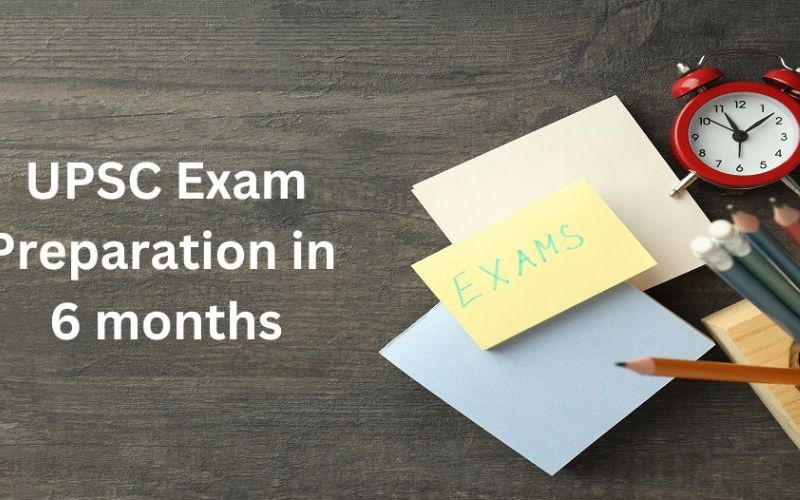Preparing for the Union Public Service Commission (UPSC) examination is a daunting task that typically requires extensive study and meticulous planning. However, with a focused approach and dedicated effort, it is possible to prepare for the UPSC in six months. This guide outlines a comprehensive strategy to help you maximize your preparation time effectively.
Understanding the UPSC Examination Structure
The UPSC Civil Services Examination consists of three stages:
- Preliminary Examination (Prelims)
- Main Examination (Mains)
- Personality Test (Interview)
Prelims
The Prelims is a screening test consisting of two objective-type papers:
- Paper I: General Studies (GS)
- Paper II: Civil Services Aptitude Test (CSAT)
Mains
The Mains is a written examination with nine papers, including:
- Paper A: Compulsory Indian Language
- Paper B: English
- Essay
- General Studies I, II, III, IV
- Optional Subject Papers I and II
Personality Test
This is an interview that assesses the candidate’s personality, intellectual capabilities, and social traits.
Six-Month Preparation Strategy
Month 1: Laying the Foundation
- Syllabus Familiarization: Begin by thoroughly understanding the UPSC syllabus and examination pattern. Break down the syllabus into manageable sections.
- Resource Gathering: Collect essential books and study materials. Recommended resources include NCERT books (6th-12th standard), standard reference books (e.g., Laxmikanth for Polity, Spectrum for History), and current affairs magazines.
- Daily Routine: Establish a disciplined daily routine. Allocate specific hours for different subjects and stick to your schedule.
Month 2: Building Knowledge
- General Studies Paper I: Focus on History, Geography, Polity, and Economics. Use NCERT books and standard references.
- CSAT Preparation: Practice comprehension, logical reasoning, and quantitative aptitude using previous years’ question papers and practice books.
- Current Affairs: Start reading newspapers like The Hindu or Indian Express daily. Note down important events and issues in a dedicated notebook.
Month 3: Deepening Understanding
- General Studies Paper II: Dive into topics like International Relations, Governance, Social Justice, and Welfare Schemes.
- Optional Subject: Choose your optional subject wisely. Start with basic books and gradually move to advanced references. Dedicate at least two hours daily to your optional subject.
- Answer Writing Practice: Begin writing answers to previous years’ Mains questions. Focus on structuring your answers and presenting your points.
Month 4: Intensive Study
- General Studies Paper III: Study topics such as Science and Technology, Environment, Disaster Management, and Security Issues. Use authentic sources like government reports and scientific journals.
- Ethics, Integrity, and Aptitude (GS Paper IV): Read books like Lexicon for Ethics and practice case studies.
- Revision and Notes: Start revising what you have studied so far. Create concise notes for quick revision later.
Month 5: Polishing Skills
- Essay Writing: Practice writing essays on diverse topics. Focus on clarity, coherence, and argument strength.
- Mock Tests: Take regular mock tests for both Prelims and Mains. Analyze your performance, identify weaknesses, and work on them.
- Current Affairs Revision: Revisit your current affairs notes and make sure you are up-to-date with the latest events.
Month 6: Final Touches
- Full-Length Tests: Take full-length mock tests under exam conditions. This will help you manage your time and develop exam temperament.
- Interview Preparation: Start preparing for the Personality Test. Work on your communication skills, general awareness, and personal profile.
- Holistic Revision: Spend the last few weeks revising all subjects comprehensively. Focus on weak areas and ensure all key topics are covered.
Detailed Subject-wise Strategy
History
- Ancient and Medieval History: NCERT books and Tamil Nadu Board History books.
- Modern History: Spectrum’s “A Brief History of Modern India” and Bipin Chandra’s “India’s Struggle for Independence”.
- World History: Norman Lowe’s “Mastering Modern World History”.
Geography
- Physical Geography: NCERT textbooks and G.C. Leong’s “Certificate Physical and Human Geography”.
- Indian Geography: Majid Hussain’s “Geography of India”.
- Maps: Regular practice with atlas maps.
Polity
- Indian Constitution: M. Laxmikanth’s “Indian Polity”.
- Governance: Current affairs and Yojana/Kurukshetra magazines.
Economics
- Basic Economics: NCERT books and Ramesh Singh’s “Indian Economy”.
- Current Economic Issues: Economic Survey and Budget documents.
Environment
- Concepts: Shankar IAS’s “Environment”.
- Current Issues: Newspapers and monthly magazines.
Science and Technology
- Basic Concepts: NCERT science textbooks.
- Current Developments: Science Reporter magazine and current affairs.
Ethics, Integrity, and Aptitude
- Theory: Lexicon for Ethics, Integrity, and Aptitude.
- Case Studies: Practice from previous years’ papers and case study books.
Time Management Tips
- Set Realistic Goals: Break down your study plan into weekly and daily goals. This helps in tracking progress and staying motivated.
- Prioritize Topics: Focus more on high-weightage topics and your weak areas.
- Balanced Schedule: Include short breaks in your study schedule to avoid burnout. Practice relaxation techniques like meditation.
Health and Wellness
- Physical Health: Regular exercise and a balanced diet are crucial. Avoid junk food and stay hydrated.
- Mental Health: Maintain a positive mindset. Practice mindfulness and stress-relief activities.
Useful Resources and Platforms
- Online Courses: Platforms like Unacademy and Byju offer comprehensive courses for UPSC preparation.
- Mobile Apps: Use apps like ClearIAS and Insights on India for quick revisions and current affairs updates.
- Study Groups: Join online study groups and forums to discuss topics and share resources.
Conclusion
Preparing for the UPSC examination in six months is challenging but achievable with a structured plan and consistent effort. Focus on understanding the syllabus, using the right resources, practicing regularly, and maintaining your health. Stay motivated and believe in your ability to succeed. With dedication and the right approach, you can effectively prepare for the UPSC and achieve your goal of becoming a civil servant.





